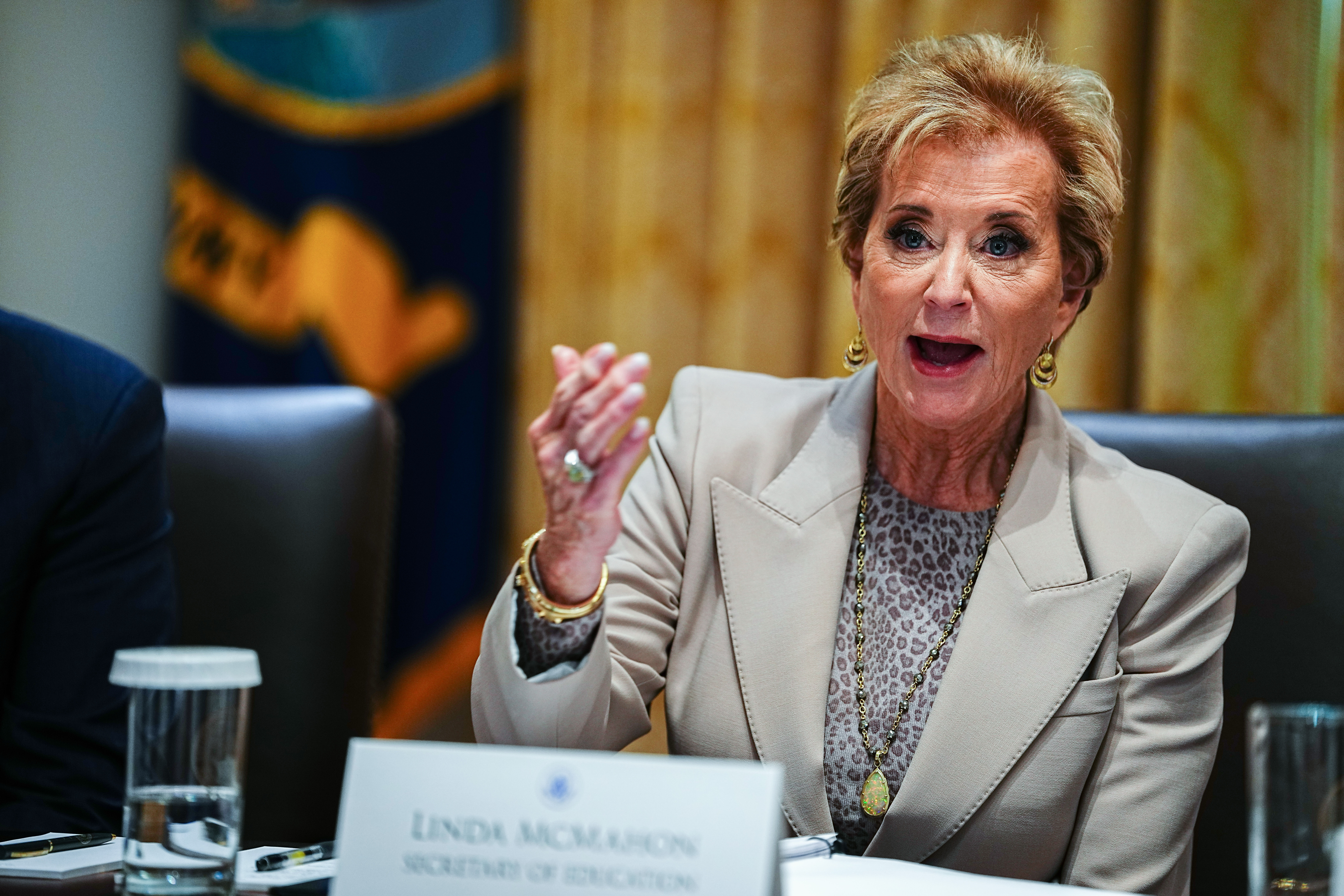
Two lawsuits were filed Monday against the Trump administration after the Education Department published a student debt forgiveness rule that critics say violates free speech and seeks to punish the president’s political opponents.
The rule amends what employers will qualify for the Public Service Loan Forgiveness program, which allows civil service and nonprofit workers to have their student loans canceled after they’ve made 120 qualifying monthly payments. It states that employers that have “substantial illegal purpose” will not be eligible for the program. This includes supporting terrorism and trafficking children to emancipate them from their parents, among other things.
But critics of the rule say the department chose those specific issues so it could exclude organizations that work with LGBTQ individuals, immigrants, transgender children and others who don’t align with the administration from the program.
One of the lawsuits led by the National Council of Nonprofits, along with more than a dozen cities, labor unions and nonprofit organizations, alleges that the rule violates the Higher Education Act, which states that government and 501(c)(3) nonprofit employers are PSLF-eligible. The plaintiffs also argue that the rule violates the First Amendment rights of millions of public service workers.
Massachusetts, New York and 20 other states, also filed a separate lawsuit Monday, making similar arguments. Both lawsuits were filed in the U.S. District Court for the District of Massachusetts.
Plaintiffs in both suits allege the administration is trying to use the loan forgiveness program as a political weapon.
“Contrary to law, the regulation allows current and future administrations to change PSLF eligibility according to their priorities or ideology, inviting government overreach and abuse and creating instability that will undermine the program’s success. This must not stand,” Diane Yentel, president and CEO of the National Council of Nonprofits, said in a statement.
Nicholas Kent, the undersecretary of Education, refuted the idea the department had such intentions and said the department would enforce the rule “neutrally” regardless of the employer’s mission, ideology or the population they serve.
“It is unconscionable that the plaintiffs are standing up for criminal activity,” Kent said in statement. “This is a commonsense reform that will stop taxpayer dollars from subsidizing organizations involved in terrorism, child trafficking, and transgender procedures that are doing irreversible harm to children.”
Other groups may also file later this week. Aaron Ament, president and co-founder of Student Defense, a nonprofit focused on legal advocacy around higher education policy, said his organization is representing groups that plan to file tomorrow in federal district court in the District of Columbia.
Student Defense and Public Citizen, a nonprofit consumer advocacy organization, will be representing Robert F. Kennedy Human Rights, American Immigration Council and a youth development organization called The Door.
Comments
Post a Comment